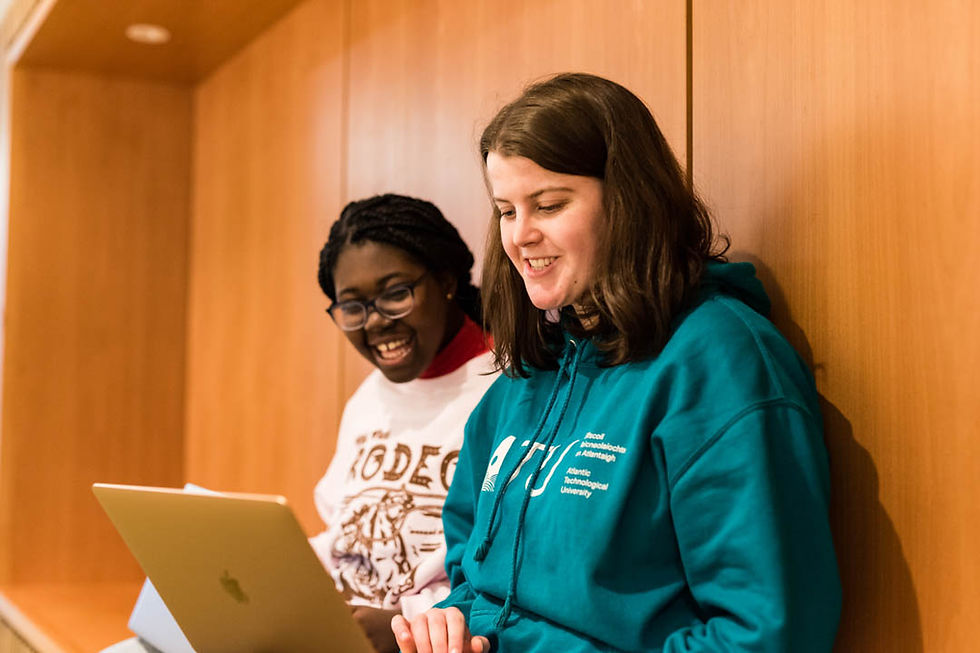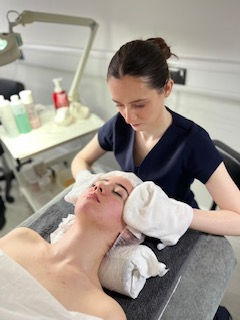About This Course
Throughout this honours degree, students develop their critical thinking skills, have a greater understanding of human interaction and how to respond professionally and informally to the needs of people who use support services.
Professional practice placement is integral to this programme, where students complete two 13-week blocks in professional social care practice settings.
Key Skills Students Acquire
A mixture of practical, theory and work placement equips students with the skills employers want.
A thorough understanding of critical social sciences such as sociology, law, psychology, and social policy
Creativity and communication
Ability to apply ethical and legal principles to complex situations
Ability to reflect on their knowledge and understanding
Research and analysis
Professional practice
Provider Locations and Structure:
Year 1 based in:
Cavan Institute, Cathedral Road, Cavan
Year 2, 3 & 4 based in:
Atlantic Technological University (ATU), Sligo Campus, Ash Lane, Sligo
Additional Information:
Placement Information - Year 2
Placements are dispersed all over Ireland and students are allocated to these based on the learning needs and requirements of the programme. Students are expected to commute distances and/or relocate for this learning experience. This is normal and to be expected in professional training programmes.
Entrants to this programme will be required to undergo vetting by An Garda Síochána.
Students on this programme must be Fit to Practice. Guidance on which can be found within the relevant policy. Students will be required to read this policy and acknowledge that they have read and understood this requirement. Certain vaccinations may also be required for work placement.
As an ATU registered student ATU Code of Conduct will apply. All students of ATU are expected to maintain high standards of personal integrity and academic honesty at all times. It is the responsibility of every student to be aware of the policy content contained herein (the Student Code) and to abide by its provisions. These provisions outline expected behavioural standards – both academic and non-academic – required of all students.



Course Content
Year 1
Students study modules such as Introduction to Sociology, Social Care and Social Policy, Introduction to Law, Introduction to Lifespan Development, Creative Practice for Social Care 1, Health Safety and Wellbeing in Social Care Practice and Interdisciplinary Care.
Year 2
Modules include Creative Practice for Social Care, Adult Mental Health and Sociology 2: Making Sense of Society. In Year 2, students also complete a 13-week professional practice placement.
Year 3
Modules include Child and Family Law, Sociology 3: An Intersectional Approach and Child and Adolescent Mental Health. In Year 3, students also complete a 13-week professional practice placement.
Year 4
In the final year, students can choose from several elective options. Students also complete a research project on a topic of interest to them.

Progression
.



Entry Requirements
Leaving Certificate- Grade O6/H7 or better in five Leaving Certificate subjects. Leaving Certificate must include English or Irish (O6/H7) and Mathematics. (Maths at F2 is acceptable)
OR
A Full level 5/6 QQI award
OR
Mature applicants - (aged 23 on or before 1st January of the course commencement year). These applicants do not have to meet the minimum entry requirements listed here and are considered on an individual basis (previous education, work experience, and demonstration of competence to undertake the programme)
OR
Access programme (LCA students can gain access to this programme following completion of an access programme)
OR
An applicant who is a minimum of 17 years of age with at least 2 years post Junior Certificate relevant experience.
In the event of over subscription priority will be given to applicants who demonstrate that they qualify for the special rate of maintenance grant under the Student Grant Scheme (SUSI) and/or are in receipt of a Department of Social Protection (DSP) long-term means-tested social welfare payment and/or be from one or more of the priority groups or from any priority group identified as part of the next National Access Plan (2022-2028).
Applicants must demonstrate competence to undertake the programme.
Applicants must complete a personal statement and interview as part of the application process
Course Fees



Student Name
Course
Add paragraph text. Click “Edit Text” to update the font, size and more. To change and reuse text themes, go to Site Styles.

Contact Us
If you have any questions, please get in touch. You can apply online through our website. We have an FAQ page, and course fees are easily accessible.







.jpg)


